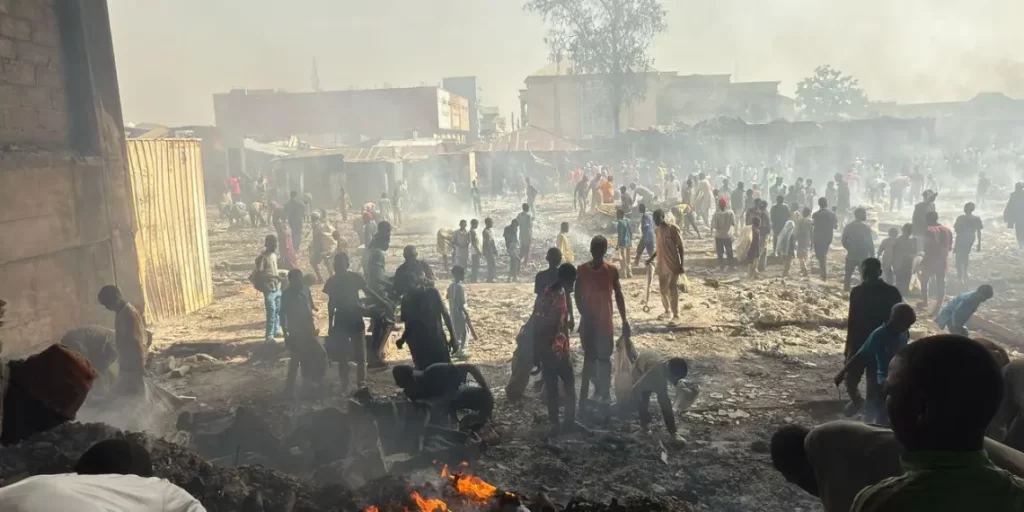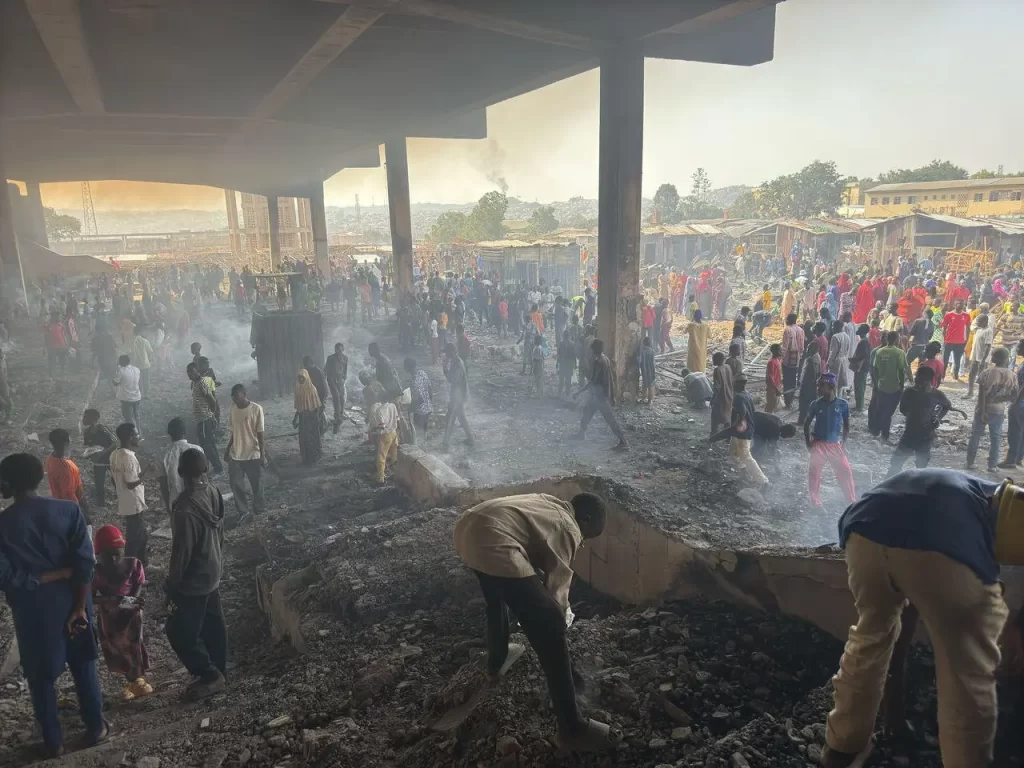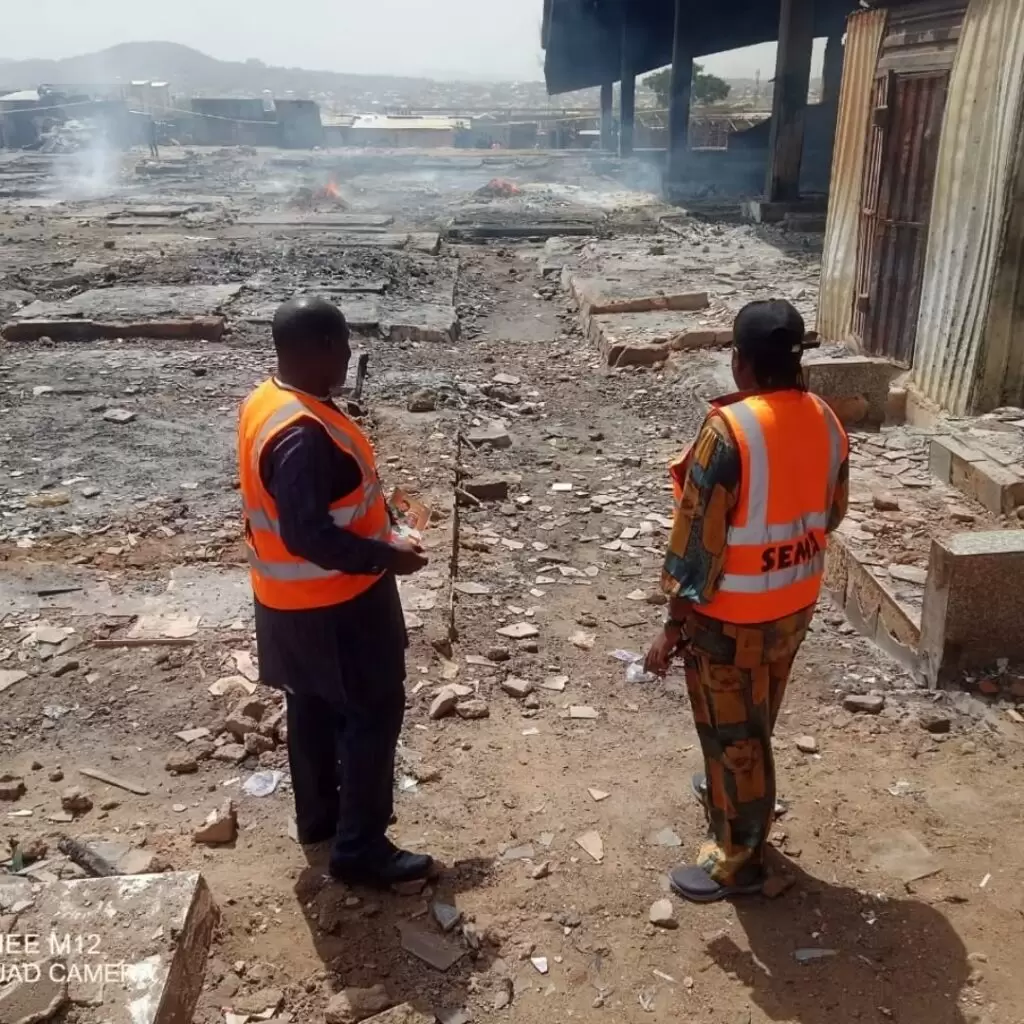A catastrophic fire outbreak has decimated a significant portion of the historic Jos Terminus Market in Plateau State, leaving hundreds of traders in despair as goods worth millions of naira were reduced to ashes in the early hours of Wednesday. The inferno, which reportedly began late Tuesday night and continued raging until Wednesday morning, primarily affected the section housing second-hand clothing retailers, locally known as “Gwanjo” or “Okrika” vendors, alongside shoe and baby clothes merchants

Outbreak and Response
According to eyewitness accounts, the blaze caught traders completely unaware, spreading rapidly through the wooden and zinc structures that housed numerous businesses. Firefighters arrived shortly after the outbreak but reportedly struggled to contain the rapidly spreading flames.
“We need government intervention urgently,” lamented Aminu Bala, a distraught trader who could not hold back tears while surveying the smoldering remains of his business.
Security agencies were promptly deployed to prevent looting, with reports indicating that some unscrupulous individuals attempted to take advantage of the chaos. Misbau Kabara, a trader who rushed to the scene around 2 a.m. to salvage his stepmother’s goods, told reporters that security personnel fired warning shots to disperse potential looters.
“Some people came to loot, and there were gunshots… so we left when the gunshots were getting too much,” Kabara recounted.

Scale of Destruction
The National Emergency Management Agency (NEMA), working alongside Jos North Local Government officials, has launched an immediate assessment of the disaster. Preliminary reports indicate that over 309 stall owners lost their entire inventory to the fire, while another 58 fell victim to opportunistic theft during the chaos.
“The affected persons are devastated and have lost their means of livelihood,” NEMA stated in its initial report, promising immediate intervention “to alleviate and cushion their loss and suffering.”

Historical Context
This tragedy adds another painful chapter to the troubled history of the Jos Main Market, once celebrated as the largest indoor market in West Africa and a significant tourist attraction for Plateau State. The market suffered a devastating fire in February 2001 and, despite multiple reconstruction attempts by various administrations, has never fully recovered. Many traders had resettled in this section after being relocated from roadside operations during government beautification efforts last year.
Economic Impact
This disaster strikes at a particularly critical moment for Nigeria’s struggling small business owners. In an era of unprecedented economic hardship, with inflation at record levels and purchasing power severely diminished, these market traders represent the resilient backbone of the local economy.
For many affected vendors, the market wasn’t merely a place of commerce—it was the embodiment of dreams, the fruit of years of struggle, and the sole source of livelihood for entire families. As Nigeria continues to navigate through challenging economic waters, the destruction of these businesses creates ripple effects that extend far beyond the charred remains of the market stalls.
As authorities investigate the cause of the fire, affected traders are left to grapple with an uncertain future, their economic security vanishing literally overnight. The Jos Terminus Market fire serves as a stark reminder of how urgently we need better infrastructure, emergency response systems, and support mechanisms for the everyday entrepreneurs who form the heartbeat of our economy.



